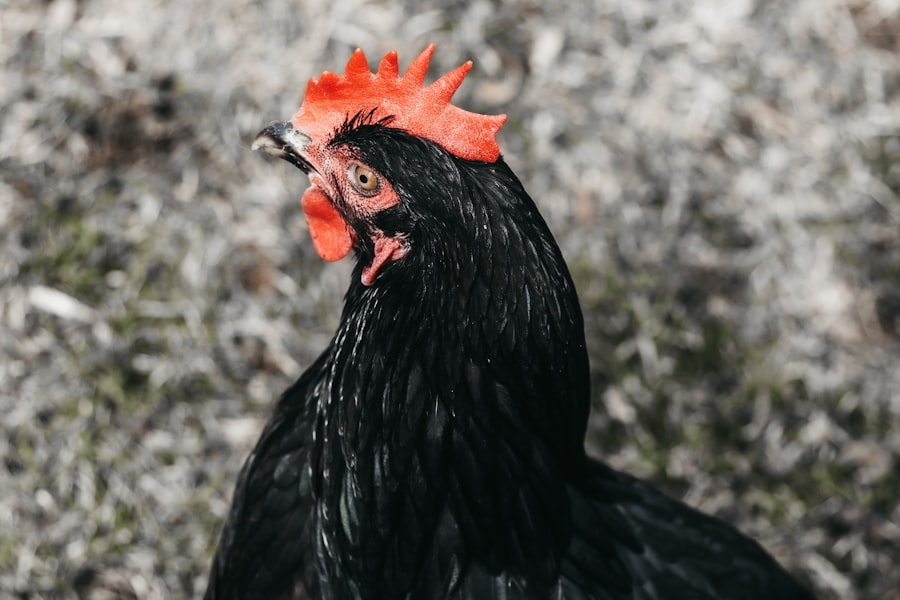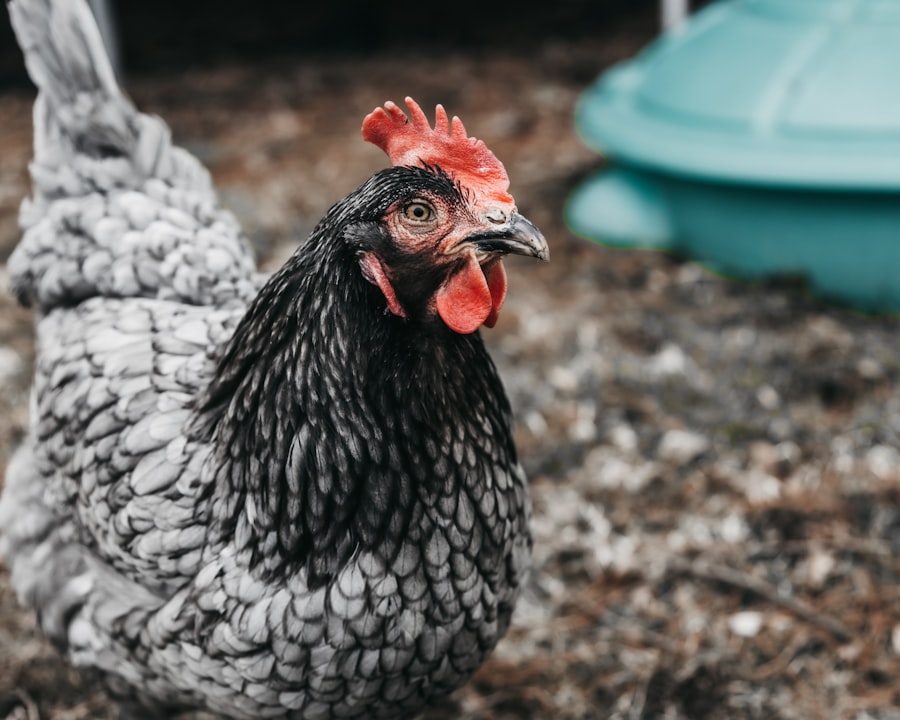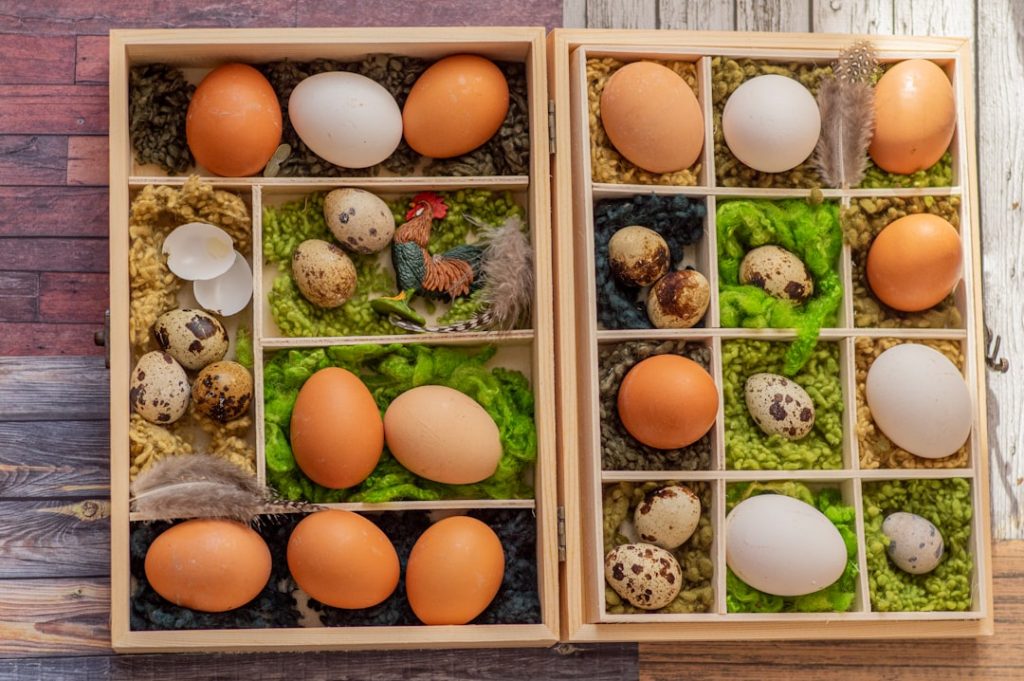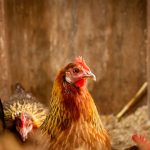Raising chickens can be a fulfilling hobby for individuals of all ages, regardless of whether they reside in rural or suburban areas. The practice offers various benefits, including access to fresh eggs, natural pest control, and potential companionship. However, it is essential to understand the basic requirements and responsibilities associated with chicken care before embarking on this endeavor.
Chickens are inherently social creatures that thrive in flocks. It is advisable to begin with a minimum of three to four chickens to ensure they have adequate companionship and can establish a natural social hierarchy. When selecting chickens, consider factors such as egg production capacity, temperament, and cold tolerance to ensure they are suitable for your specific climate and lifestyle.
It is also crucial to familiarize yourself with local regulations and zoning laws pertaining to chicken keeping, as some areas may impose restrictions on the number of chickens allowed or have specific requirements for coop construction. Maintaining chickens requires a daily commitment to their care, including providing food and water, and maintaining a clean living environment. With proper planning and attention to their needs, chicken keepers can enjoy the numerous benefits of raising these birds while ensuring their safety and comfort.
Table of Contents
- 1 Housing and Coop Requirements
- 2 Feeding and Watering Guidelines
- 3 Health and Hygiene Considerations
- 4 Egg Collection and Handling
- 5 Predator Protection Measures
- 6 General Maintenance and Care Tips
- 7 FAQs
- 7.1 What are the basic requirements for keeping chickens?
- 7.2 What should be included in a chicken coop?
- 7.3 What do chickens eat?
- 7.4 How can I protect my chickens from predators?
- 7.5 How often should I clean the chicken coop?
- 7.6 What are some common health issues for chickens?
- 7.7 How can I keep my chickens entertained?
Key Takeaways
- Keeping chickens can be a rewarding experience, providing fresh eggs and a connection to nature.
- A suitable coop and housing is essential for the well-being of chickens, providing protection from the elements and predators.
- Feeding chickens a balanced diet and providing clean water is crucial for their health and egg production.
- Regular health checks and maintaining good hygiene in the coop are important for preventing diseases and parasites.
- Collecting eggs regularly and handling them properly ensures their freshness and quality.
Housing and Coop Requirements
Coop Requirements
When it comes to housing your chickens, providing a secure and comfortable coop is essential for their well-being. The coop should offer protection from predators, shelter from the elements, and ample space for roosting and nesting. The general rule of thumb is to allow at least 2-3 square feet of space per chicken inside the coop, with an additional 8-10 square feet of outdoor space in the run area.
Coop Design and Features
The coop should be constructed with sturdy materials and include features such as proper ventilation, windows for natural light, and easy access for cleaning. Nesting boxes should be provided for egg-laying, with one box for every 3-4 hens. It’s important to keep the coop clean and dry to prevent the buildup of bacteria and parasites, which can lead to health issues for the chickens.
Outdoor Run Area
In addition to the coop, chickens also need a secure outdoor run area where they can forage, dust bathe, and exercise. The run should be enclosed with wire mesh to prevent predators from gaining access and should include areas of shade and protection from the elements.
Feeding and Watering Guidelines

Proper nutrition is essential for the health and well-being of your chickens. A balanced diet will not only support egg production but also contribute to overall vitality and disease resistance. A commercial layer feed is a convenient option that provides the necessary nutrients for laying hens, including protein, calcium, and essential vitamins and minerals.
Additionally, offering supplemental treats such as fruits, vegetables, and mealworms can provide enrichment and variety in their diet. Fresh, clean water should be available to your chickens at all times, as dehydration can quickly lead to health issues. Consider using a waterer with a base that prevents spillage and contamination, especially in the coop where bedding can become soiled.
During hot weather, it’s important to monitor water consumption and provide additional sources of hydration, such as watermelon or electrolyte supplements. It’s important to monitor your chickens’ food consumption and adjust their diet as needed based on factors such as age, breed, and seasonal changes. By providing a balanced diet and access to clean water, you can support the health and productivity of your flock.
Health and Hygiene Considerations
Maintaining good health and hygiene practices is crucial for preventing disease and ensuring the well-being of your chickens. Regularly inspecting your flock for signs of illness or injury can help you identify potential issues early on. Common signs of illness in chickens include lethargy, decreased appetite, abnormal droppings, respiratory symptoms, or changes in behavior.
In addition to monitoring their health, practicing good hygiene in the coop is essential for preventing the spread of disease. This includes regularly cleaning and replacing bedding, removing soiled nesting material, and keeping feeders and waterers clean and free of mold or bacteria. Proper ventilation in the coop can also help reduce moisture levels and prevent respiratory issues.
Another important aspect of maintaining chicken health is parasite control. Regularly inspecting your chickens for external parasites such as mites or lice can help prevent infestations that can cause discomfort and stress. Additionally, deworming your chickens on a regular schedule can help control internal parasites that can impact their overall health.
By staying vigilant about health and hygiene practices, you can help ensure that your chickens remain healthy and happy members of your household or farm.
Egg Collection and Handling
One of the most rewarding aspects of keeping chickens is collecting fresh eggs from your flock. To ensure the quality and safety of the eggs, it’s important to establish good practices for collection and handling. Eggs should be collected daily to prevent them from being soiled or broken by other hens.
It’s best to collect eggs frequently throughout the day to minimize the risk of breakage or contamination. When handling eggs, it’s important to be gentle and avoid sudden movements that could cause them to crack. Inspect each egg for cleanliness and cracks before placing them in a clean egg carton or basket.
If an egg is soiled, it can be gently wiped with a dry cloth or brushed with a soft brush to remove any dirt or debris. Proper storage of eggs is also important for maintaining their quality and freshness. Eggs should be stored in a cool, dry place away from strong odors or contaminants.
It’s best to store eggs with the pointed end down to help maintain their internal quality over time. By following these guidelines for egg collection and handling, you can enjoy delicious and nutritious eggs from your flock while ensuring their safety and quality.
Predator Protection Measures

Secure Fencing: The First Line of Defense
Fencing should be buried at least 12 inches underground to prevent digging predators from gaining access to the coop or run area. Additionally, using hardware cloth with small openings is recommended to prevent predators from reaching through or squeezing through the wire mesh. Regularly inspecting the perimeter for signs of digging or damage can help identify potential weak points in the fencing.
Fortifying the Coop: Additional Measures
In addition to secure fencing, it’s essential to fortify the coop with features such as latches on doors and windows, predator-proof locks on nesting boxes, and secure roofing to prevent entry from aerial predators. Motion-activated lights or sound devices can also help deter nocturnal predators from approaching the coop.
Minimizing the Risk of Predation
By implementing these predator protection measures, you can help ensure the safety and security of your flock while minimizing the risk of predation. With a combination of secure fencing and a fortified coop, you can provide a safe and healthy environment for your chickens to thrive.
General Maintenance and Care Tips
In addition to the specific considerations outlined above, there are several general maintenance and care tips that can contribute to the overall well-being of your chickens. Regularly cleaning the coop and run area is essential for preventing the buildup of waste and bacteria that can lead to health issues. This includes removing soiled bedding, refreshing nesting material, and scrubbing feeders and waterers on a regular basis.
Monitoring your chickens for signs of stress or injury is also important for addressing potential issues early on. This includes observing their behavior, checking for signs of pecking or aggression within the flock, and providing enrichment activities such as dust bathing areas or hanging treats to reduce boredom. Finally, establishing a relationship with a veterinarian who specializes in poultry care can provide valuable support in maintaining the health of your flock.
A veterinarian can offer guidance on vaccination schedules, parasite control, and treatment options for common health issues that may arise. By incorporating these general maintenance and care tips into your routine, you can help ensure that your chickens remain healthy, happy, and productive members of your household or farm.
If you’re looking for more information on keeping chickens, be sure to check out this article on chicken coop designs in Muskegon. It provides helpful tips and ideas for creating a comfortable and functional living space for your feathered friends.
FAQs
What are the basic requirements for keeping chickens?
Basic requirements for keeping chickens include a secure coop, access to fresh water, proper nutrition, and protection from predators.
What should be included in a chicken coop?
A chicken coop should include roosting bars, nesting boxes, proper ventilation, and protection from the elements and predators.
What do chickens eat?
Chickens should be fed a balanced diet of commercial chicken feed, supplemented with kitchen scraps, grains, and greens.
How can I protect my chickens from predators?
To protect chickens from predators, it’s important to secure the coop with sturdy fencing, lock the coop at night, and use predator-proof latches and hardware.
How often should I clean the chicken coop?
The chicken coop should be cleaned regularly, with droppings removed daily and a deep clean done every few weeks to prevent the buildup of bacteria and pests.
What are some common health issues for chickens?
Common health issues for chickens include parasites, respiratory infections, and egg-laying problems. Regular health checks and proper nutrition can help prevent these issues.
How can I keep my chickens entertained?
Chickens can be kept entertained with access to a spacious outdoor area, dust baths, and hanging treats or toys in the coop.
Meet Walter, the feathered-friend fanatic of Florida! Nestled in the sunshine state, Walter struts through life with his feathered companions, clucking his way to happiness. With a coop that’s fancier than a five-star hotel, he’s the Don Juan of the chicken world. When he’s not teaching his hens to do the cha-cha, you’ll find him in a heated debate with his prized rooster, Sir Clucks-a-Lot. Walter’s poultry passion is no yolk; he’s the sunny-side-up guy you never knew you needed in your flock of friends!







